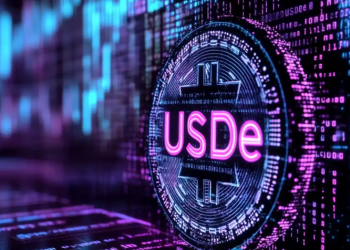Prominent economist and Bitcoin critic Peter Schiff recently voiced strong opposition to the idea that Bitcoin could reach astronomical valuations and serve as a solution to the U.S. national debt. Schiff’s comments come in the wake of proposals by Bitcoin advocates and U.S. Senator Cynthia Lummis suggesting the use of U.S. reserves to purchase Bitcoin. Schiff argues that such logic is fundamentally flawed and could have detrimental effects on the U.S. economy. Here’s a deeper look into Schiff’s critiques and the broader implications for the cryptocurrency market.
Schiff’s Critique of Bitcoin Investment Logic
Peter Schiff has long been a vocal critic of Bitcoin and its purported potential as a hedge against inflation and a store of value. Recently, he took aim at the notion that the U.S. government should buy Bitcoin now and sell it in the future to pay off the national debt without causing inflation. Schiff highlighted the contradictory nature of this logic: proponents argue that Bitcoin’s price will rise significantly due to inflation, yet they also suggest it could be used to repay debt without further inflating the currency.
Schiff pointed out the inherent paradox in this investment strategy. He questioned the advice of never selling Bitcoin, as promoted by notable figures like former President Donald Trump and MicroStrategy CEO Michael Saylor. Schiff asked, “If that’s true and no one who buys Bitcoin ever sells any, what’s the point of owning it?” He argued that this philosophy could lead to a situation where investors accumulate Bitcoin but remain in poverty due to the impracticality of liquidating their holdings.
Senator Lummis’ Bitcoin Proposal
During a recent Bitcoin conference, Wyoming Senator Cynthia Lummis proposed using $70 billion from the U.S. reserves to purchase one million Bitcoins, equating to 5% of the total supply. Lummis likened this potential investment to the historic Louisiana Purchase, which significantly expanded U.S. territory at a minimal cost. She argued that acquiring Bitcoin could be a strategic move for the U.S. government.
However, Schiff vehemently disagreed with this proposal, stating that “borrowing billions to buy Bitcoin adds nothing but debt and inflation.” He emphasized that the U.S. is already grappling with substantial debt, and additional expenditure on Bitcoin would necessitate further borrowing. Schiff argued that using forex reserves for such a purchase is equivalent to borrowing and that these reserves should instead be utilized to reduce the national debt.
Implications for the U.S. Economy
Schiff warned that Senator Lummis’ proposal could exacerbate the financial instability of the U.S. He pointed out that depleting the country’s reserves to invest in Bitcoin could leave the U.S. without a financial safety net, thereby increasing economic vulnerability. Schiff’s perspective underscores the broader skepticism among traditional economists regarding the adoption of Bitcoin as a national asset.
Furthermore, Schiff’s critiques highlight the potential risks of speculative investment strategies. While Bitcoin has garnered significant attention and support as a revolutionary financial asset, its volatility and the speculative nature of its valuation pose considerable risks. Schiff’s arguments suggest that relying on Bitcoin to solve national financial issues could be misguided and dangerous.
Conclusion
Peter Schiff’s recent critiques of Bitcoin investment logic and Senator Lummis’ proposal underscore the ongoing debate about the role of cryptocurrency in national economic strategies. Schiff’s arguments highlight the contradictions and potential risks associated with the notion that Bitcoin could reach millions per coin and serve as a tool for addressing national debt. As the cryptocurrency market continues to evolve, these discussions are crucial for understanding the potential implications of integrating digital assets into national economic policies. Investors and policymakers must carefully weigh the benefits and risks of such strategies to ensure long-term economic stability and growth.
Related topics:
Bitcoin Miner Marathon Digital Hit with $139 Million Fine; MARA Stock Dips 2.5%
Shytoshi Kusama Exposes Crypto’s Error with Shiba Inu’s TREAT Token
DeFi TVL Skyrockets 72% to $94 Billion in 2024, Says Binance Report
















